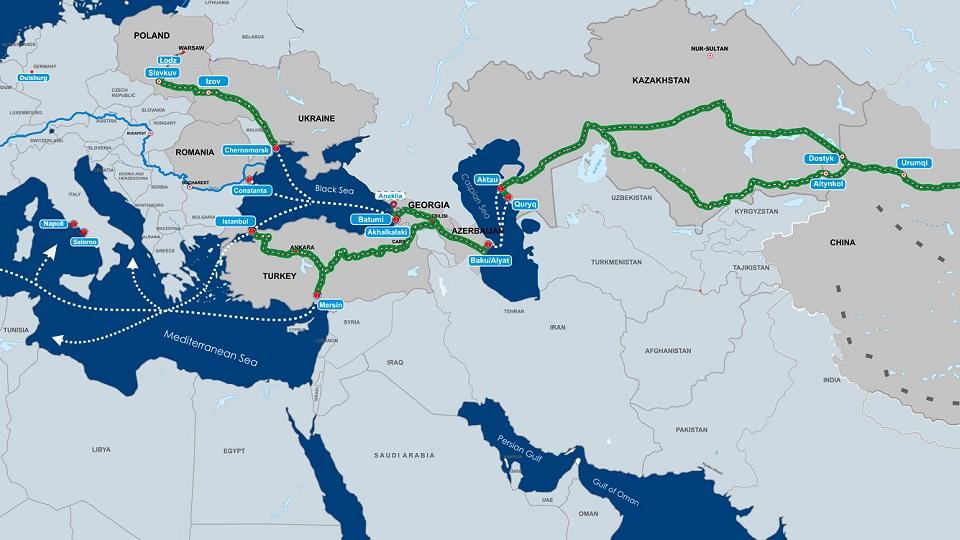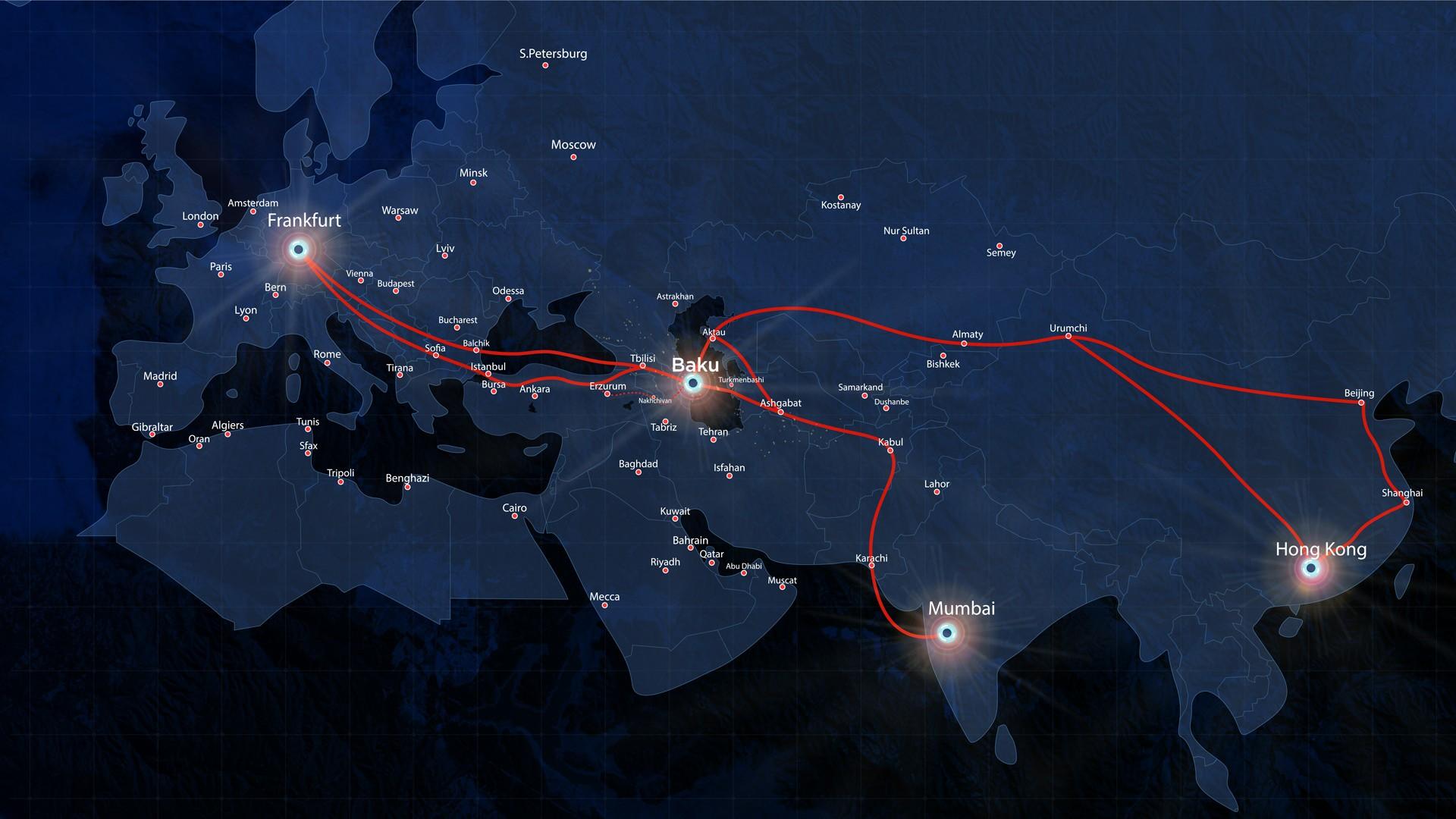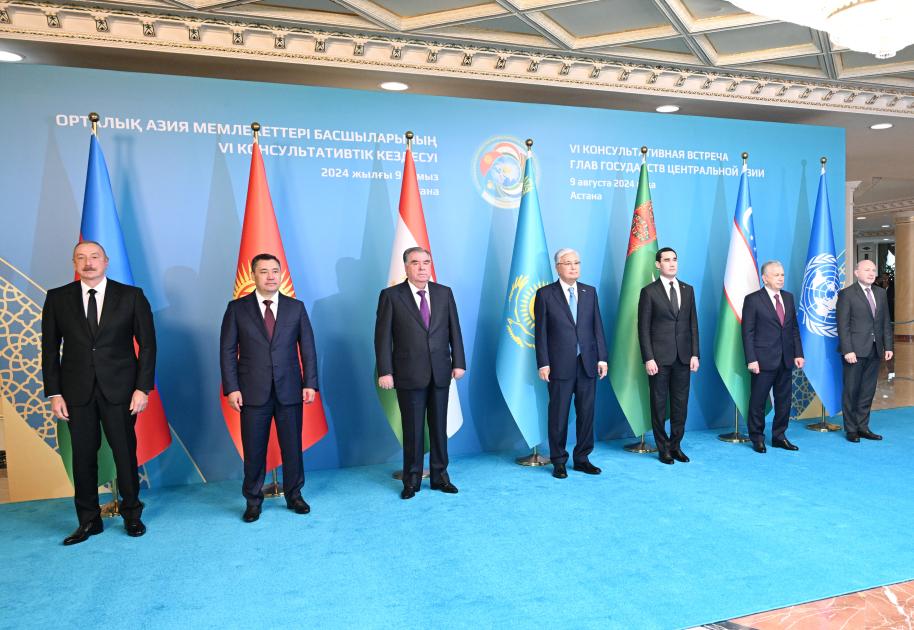Azerbaijan’s pivot to Central Asia Land bridge to Europe
On August 9, President of the Republic of Azerbaijan Ilham Aliyev participated in the meeting of the Heads of State of Central Asia and the Republic of Azerbaijan in Kazakhstan. Indeed, President Aliyev's attendance at the high-level event highlighted Baku’s pivot to Central Asia and Azerbaijan’s growing economic interests in the energy-rich region.
Since 2020, Azerbaijan has pursued a relatively renewed foreign policy strategy towards Central Asia in light of the rising importance of interregional transport connections. For several years, Azerbaijan, in partnership with Türkiye, promoted the idea of the Middle Corridor (Trans-Caspian International Transit Route) linking China-Central Asia to the South Caucasus and Europe via the Caspian Sea. As such, the landlocked Central Asian countries expressed willingness to join the project, particularly following the Russian invasion attempts of Ukraine in February 2022.

The Middle Corridor is a multimodal land and sea transport route stretching from China through Kazakhstan, partly Uzbekistan and Turkmenistan, and across the Caspian Sea through Azerbaijan and Georgia to the Black Sea. The route consists of about 4,250 km of rail lines and about 500 km of seaway. Hence, Azerbaijan has long been one of the major stakeholders in developing new trade links through investing in new infrastructure and modernizing its transport system.
As the global geopolitical order shifts, Azerbaijan proactively adjusts its foreign policy strategy. This adjustment is based on building deeper partnerships with the Central Asian region, reflecting shared geopolitical and economic interests. These interests include developing infrastructure, expanding trade, and collectively addressing the unfolding global instability caused by Russia's war against Ukraine.
Notably, Kazakhstan and Azerbaijan play key roles in the geopolitical interplay between Central Asia and the South Caucasus. This significance is reinforced by the growing economies, demographics, and transport capacities of both countries. Moreover, one of the most important factors of cooperation is the growth of mutual trade and investment, with trade turnover reaching a record $529.4 million last year, demonstrating the mutual benefits of these partnerships.

Considering the scope of the partnership of Azerbaijan with Central Asia, President Aliyev's recent participation in the annual meeting of the Shanghai Cooperation Organization in Astana should come as a little surprise. In addition to economy and energy, Azerbaijan is one of the main initiators of the Digital Silk Road project, which aims to create a digital telecommunications corridor between Asia and Europe. This project includes plans to lay a fibre-optic communication line along the bottom of the Caspian Sea, which will make a significant contribution to the digitalization and development of communication services in the region.
The frequently changing regional balance of power and geopolitical turmoil in the West and the Middle East has only strengthened Azerbaijan’s determination not to align itself with either of the confronting parties. Also, Baku has sought to reinforce relations with Central Asia's Turkic states, likely as part of an overall strategy to minimize Baku’s susceptibility to pressure from external actors.

Instead, Azerbaijan maintains a delicate distance between all geopolitical actors, avoiding falling under the influence of anyone. Considering the ongoing Russo-Ukraine war, the resolution of global security catastrophes is not on the horizon yet. Azerbaijan has various political and economic goals, one of which is to improve its relations with Central Asian countries. In terms of political reasons, first of all, Baku's engagement with Central Asian countries increases its geopolitical importance, not only for the regional powers but also for the EU and China.
Nevertheless, Azerbaijan will likely demonstrate strong commitment and kinship to play a bridge role between Asia and Europe with economic and political dividends. The current format perfectly matches Baku’s interest as it remains a key transit country for countries like Kazakhstan, Turkmenistan, and Uzbekistan in linking them with Türkiye and further to Europe amid geopolitical uncertainty.








